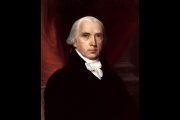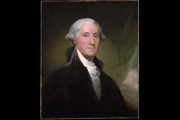
It has almost become a cliché to say that this is a spiritual battle, but the adage is worth not only repeating, but being fully understood.
There are countless writings and documentaries on the relationship between Nazism and occultism. The vast majority of this scholarship focuses on the Nazis’ use of and affinity for occult or ancient symbols and relics: The swastika, the Spear of Destiny, etc.
While there is certainly a lot of worthwhile insight to be gained from these subjects, the occult means by which Adolf Hitler went from school dropout and derelict to one of the most powerful men in the world, as the totalitarian dictator over one of the world’s most advanced and militarily formidable states, are much simpler.
But to truly understand Hitler’s use of the occult, one must first understand what occultism actually is.
While the layperson believes the occult to be synonymous with practices such as witchcraft and voodoo, occultism is more broad than that and can take very different forms.
The word “occult” means hidden, and occultism refers to knowledge that, while it falls outside the scope of mainstream religion and science, is not necessarily in conflict with them. In fact, many of the Western occult traditions, such as alchemy and Hermeticism, have strong ties to or are derived from a Christian foundation. And, far from being all about spells and hexes and magic words, a great deal of occultism is more of a deep, more mystical, more metaphysical treatment of “legitimate” studies such as psychology and philosophy.
One theme that underlies the occult, or at least has become the near-consensus among occult scholars today, is that all the ritual and ceremony, the iconography and objects, that are typically associated with occult practices are not in and of themselves the sources of occult power, but merely the symbols which serve the psychological purpose of concentrating the mind — for the true source of power is the mind.
This principle is summed up in the famous phrase attributed to the mythical figure Hermes Trismegistus, believed to have been an extremely wise man and contemporary of the biblical patriarch Abraham:
“As above, so below, as within, so without.”
In that phrase, “above” refers to Heaven; “below” refers to the Earth — ”Heaven” being a metaphor for the soul or mind, while the “Earth” is a metaphor for the external world.
To expound this principle very concisely, it is the idea that one’s beliefs, thoughts, and mental states are what directly create one’s reality. Thus, in the literal sense, “as within, so without.”
According to this principle, if one enters a mental state in which he feels wealthy and believes himself worthy of riches, his external reality eventually manifests wealth. If he believes himself to be a poor failure, then his life will manifest only poverty and failure.
This philosophy gained a popular following in the United States in the late 19th to mid-20th centuries in what was known as the New Thought Movement, which formed the basis for much of today’s self-help movement, as exemplified by gurus such as Tony Robbins. And Norman Vincent Peale, the author of The Power of Positive Thinking and Donald Trump’s pastor at Marble Collegiate Church, was a proponent of Christian New Thought.
For individuals such as Peale and Robbins, exercises such as visualization and affirmations are important because they reprogram your subconscious beliefs, and your subconscious beliefs in turn reprogram your physical reality.
Another powerful tool for reprogramming the mind with desired beliefs is hypnosis. Many people successfully use hypnosis or self-hypnosis to quit smoking, become more confident, and overcome mental deficiencies. In the book The Power of Your Subconscious Mind, Joseph Murphy detailed numerous examples of people who also were cured of physical ailments or came into great wealth and business opportunities through self-hypnosis.
Murphy was a Christian, and likened these principles to the biblical teaching that faith is always the underlying power through which miracles occur.
How does all this relate to Hitler?
It was by these same principles that Hitler gained the powerful magnetism and charisma that allowed him to captivate an entire nation.
As it turns out, Hitler was hypnotized into believing himself to be Germany’s savior.
Psychologist David Lewis explains this bit of unknown history in his book Triumph of the Will? How Two Men Hypnotized Hitler and Changed the World.
In his book, Lewis relates the now well-known story of how Hitler was blinded during a mustard-gas attack while in the trenches during World War I.
What is less known, but which Lewis reveals through a look at surviving German medical records, is that Hitler’s blindness was not caused by the mustard gas, but was a psychosomatic blindness caused by the rage and emotional devastation of Germany’s loss in the war.
To treat the psychologically induced blindness, Hitler was sent to a mental hospital in the remote Pomeranian town of Pasewalk, where he was treated by one of Germany’s most respected psychiatrists, Edmund Robert Forster — a pioneer in hypnosis therapy.
Forster successfully treated Hitler’s blindness by hypnotizing him. During the hypnotic trance, Forster convinced Hitler that he could cure himself of his blindness because he was possessed of a supernatural ability to perform miracles and a once-in-a-millennium destiny to save Germany.
The hypnosis session was recreated and fictionalized in the novel The Eyewitness, quoted by Lewis in his book:
On the evening of November 6th, the doctor ordered Hitler be brought to his consulting room. He seated him on an upright chair, before a table on which stood two unlighted candles.
“Your eyes have been terribly damaged,” Forster told him bluntly. “I should never have assumed that you, a pure Aryan, a good soldier, a knight of the Iron Cross, First Class, would lie or deceive… Everyone has to accept their lot. The individual is powerless where fate is concerned. Miracles do not happen anymore.”
He paused for a long moment, then added more optimistically. “But that goes only for the average person, miracles still happen frequently to chosen people. There have to be miracles and great people before whom nature bows, don’t you agree?”
“As you say, Doctor,” Hitler agreed plaintively.
“I am no charlatan, no performer of miracles,” Edmund went on. “I am a simple doctor, but maybe you yourself have the rare power that only occurs once every millennium to perform a miracle. Jesus did this, Mohammed, the saints…I could show you the method by which, despite the fact your eyes have been damaged by mustard gas, you can see again.
With your symptoms, an ordinary person would be blind for life. But for a person with exceptional strength of will power and spiritual energy there are no limits, scientific assumptions do not apply to that person, the spirit removes any such barrier – in your case the thick white layer in your cornea. But maybe you do not possess this power to perform miracles.”
“How can I tell?” Hitler demanded uncertainly.
“Do you trust yourself to my willpower?” Forster demanded. Then, before Hitler could reply, [he] ordered him to open his eyes wide.
“I will light the candles. Did you see the sparks from the match?”
After a moment, Hitler replied: “Not a light, but a kind of white, round shimmer.”
“You must have absolute faith in yourself, then you will stop being blind.” Forster told him. “You know that Germany now needs people who have energy and faith in themselves.”
“I know that.” Hitler stood up trembling and held on to the edge of the table.
“Listen. I have two candles here, one on the left and one on the right. You must see! Do you see them?”
“If only it was possible!”
“For you anything is possible! God will help you, if you help yourself! In every human being is a part of God. That is the will, the energy! Gather all your strength. More, more, more! Good! What do you see now?”
After a lengthy pause Hitler replied:
“I see your face… your hand and the signet ring, your white coat, the newspaper on the table and the notes about me.”
“Sit down,” Forster told him, “and take a rest. You have been cured. You have made yourself see. You behaved like a man. You managed to put light into your eyes because of your willpower.”
Forster later recalled: “Everything happened as I wanted it to. I had played fate, played God and restored sight to a blind man.”
What Edmund Forster failed to appreciate was that, in restoring Hitler’s sight he had planted in his brain the conviction he had been chosen by destiny for some special mission. That, henceforth, he would firmly believe was dictated by some higher power.
As is now common knowledge, Hitler became involved with the National Socialists shortly after he returned from the war, and quickly became their star figure. The rest is history.
Later in life, Hitler became close with the mentalist and clairvoyant Erik Jan Hanussen, a skilled hypnotist who instructed Hitler in using hypnotism on the masses.
Those who saw and heard Hitler speak in person said that what made him so powerful and convincing was his absolute conviction, his unadulterated belief not only in the political solutions he espoused, but in his own unique role as the only man who could restore Germany.
Writes Lewis: “Even educated Germans who before hearing him speak had dismissed Hitler as a slightly absurd and hysterical rabble-rouser often found themselves persuaded by the sheer force of his passionate self-belief.”
Kurt Ludecke, a gambler, businessman, and adventurer, recounted of his experience seeing Hitler speak in 1922:
Threatening and beseeching, with small, pleading hands and flaming, steel-blue eyes, he had the look of a fanatic. Presently, my critical faculty was swept away. Leaning from the tribune as if he were trying to impel his inner self into the consciousness of all these thousands, he was holding the masses, and me with them, under a hypnotic spell by the sheer force of his conviction.
The above perfectly illustrates one of the central theses of American occultist William Walker Atkinson, author of over 100 books, most famously The Kybalion: A Study of the Hermetic Philosophy of Ancient Egypt and Greece — one of the most important works in New Thought.
In his 1907 book The Secret of Mental Magic, Atkinson writes that the stronger the willpower and desire force behind one’s thoughts — that is, the stronger one’s belief and conviction — the better able one is to project one’s thoughts and will into others’ minds and influence them. In other words, out of two individuals, the one with the strongest conviction wins over the other.
In Triumph of the Will?, Lewis similarly notes that successful hypnosis requires that the hypnotist have complete faith in his own ability to hypnotize the subject.
Hitler, perhaps through a combination of experience and his interactions with Hanussen, understood this principle well, writing in 1923:
Vehemence, passion and fanaticism [are] the great magnetic forces which alone attract the great masses; for these masses always respond to the compelling force which emanates from absolute faith in the ideas put forward, combined with an indomitable zest to fight for and defend them.
Hitler not only understood these principles — he lived and applied them. And in the process, the entire course of history changed.




